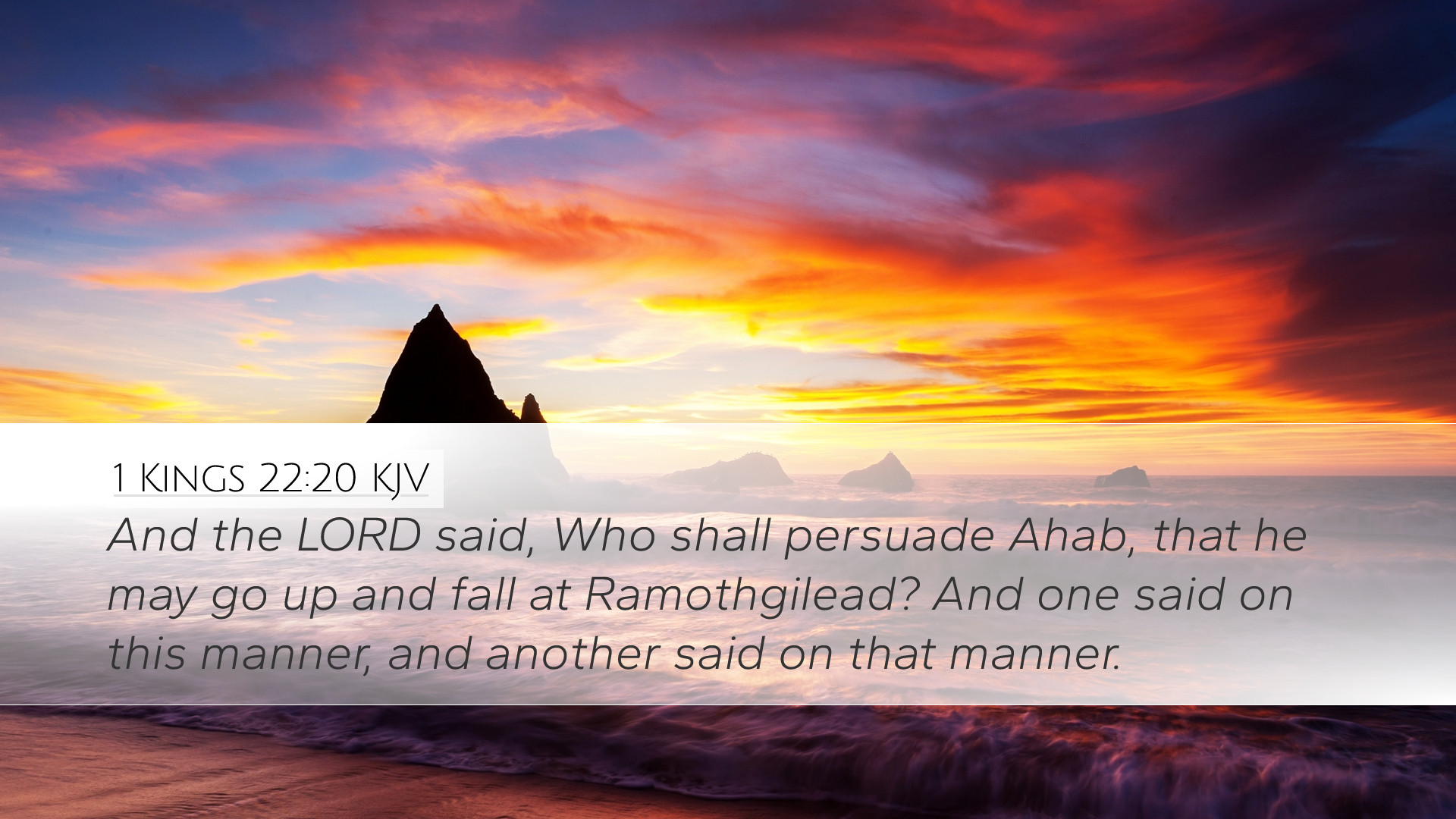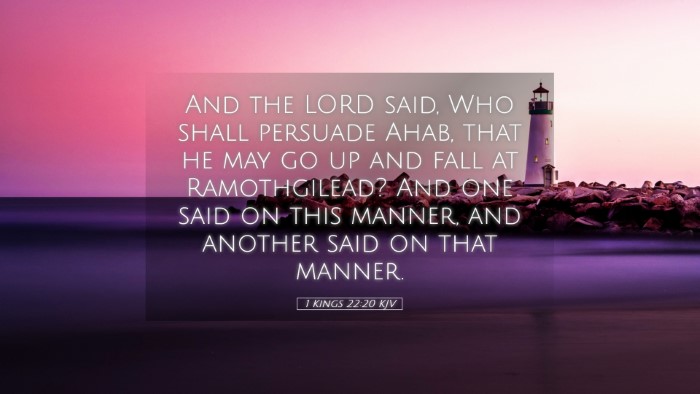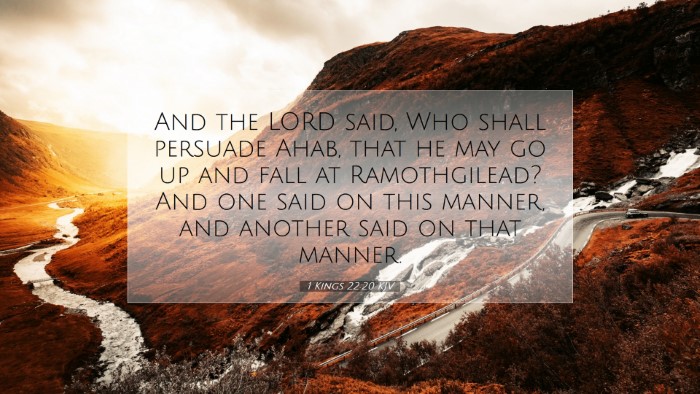Commentary on 1 Kings 22:20
Verse: "And the Lord said, Who shall persuade Ahab, that he may go up and fall at Ramothgilead? And one said on this manner, and another said on that manner."
Contextual Overview
The setting of 1 Kings 22 takes place during the reign of King Ahab of Israel, a monarch notorious for his unfaithfulness to Yahweh. This chapter portrays a crucial moment where God's sovereignty is dramatized through a divine council in the heavenly realm. Ahab’s impending doom is foreshadowed as he seeks counsel regarding a military campaign to reclaim Ramoth-Gilead from the Syrians.
Divine Consultation
In this verse, the LORD convenes a council, demonstrating His governance over both heaven and earth. The phrase “Who shall persuade Ahab” reflects God’s awareness of Ahab's character and his choice to lead his people into battle under false pretenses. The act of seeking a volunteer indicates God's sovereign control while permitting human agency.
Insights from Matthew Henry
Matthew Henry emphasizes the seriousness of divine dealings with rulers. He notes that God seeks to fulfill His purposes through both benevolent and malevolent means. Henry points out that Ahab, being stubborn and resistant to truth, demonstrates the principle that given sufficient time, God will allow even the unrepentant to follow their chosen paths towards destruction. He encapsulates a vital lesson: the tragedies of life often result from people turning away from divine wisdom.
Albert Barnes' Perspective
Albert Barnes addresses the nature of the spirits that volunteer to persuade Ahab. He interprets their willingness as manifestations of divine providence, where even the fallen angels can serve God’s will, albeit unwittingly. This touches on the mystery of God's sovereignty where evil acts can be turned to fulfill divine purposes. Barnes warns readers of the dangers of delusion that often accompany the path of rebellion against the Lord, encapsulating the spiritual blindness that Ahab had succumbed to.
Adam Clarke on Prophetic Responsibility
Adam Clarke provides a theological angle by discussing the prophetic responsibility involved in relaying God's messages. He points out that the prophets exist to uphold the truth; however, Ahab’s preference for flatterers leads him astray. Clarke articulates that the passage serves as a reminder of the eternal consequences of choosing to ignore the truth in favor of comforting lies, illustrating the grave folly of rejecting God’s counsel.
The Role of False Prophets
This verse indirectly highlights the roles of false prophets who are ready to lead the leaders astray. As implied in the narrative, Ahab’s selection of prophets who affirm his desires rather than challenge his actions is starkly illustrated. They embody the spiritual dangers of surrounding oneself with voices that support error rather than truth.
Theological Implications
The theological implications of 1 Kings 22:20 touch upon themes of divine sovereignty and human responsibility. It raises questions about how God's providence interacts with the free will of human beings. This divine dialogue captures the duality of God's power and the creation's autonomy, leaving theologians analyzing the extent of divine control versus human decision-making.
Application for Pastors and Leaders
For pastors and church leaders, the lessons from this verse encourage vigilance in discerning God’s truth. It serves as a caution against the temptation of surrounding oneself with affirming voices that avoid challenging the status quo. The narrative reminds leaders to seek godly counsel from those committed to truth, rather than from those who seek to placate.
Closing Thoughts
Ultimately, 1 Kings 22:20 serves as a multifaceted verse encapsulating profound truths about the dynamics of spiritual leadership, prophetic integrity, and divine sovereignty. As scholars and students explore its depths, they are reminded of the enduring conflict between truth and falsehood within the spheres of authority, reinforcing the necessity for faithful adherence to God’s word and counsel.


